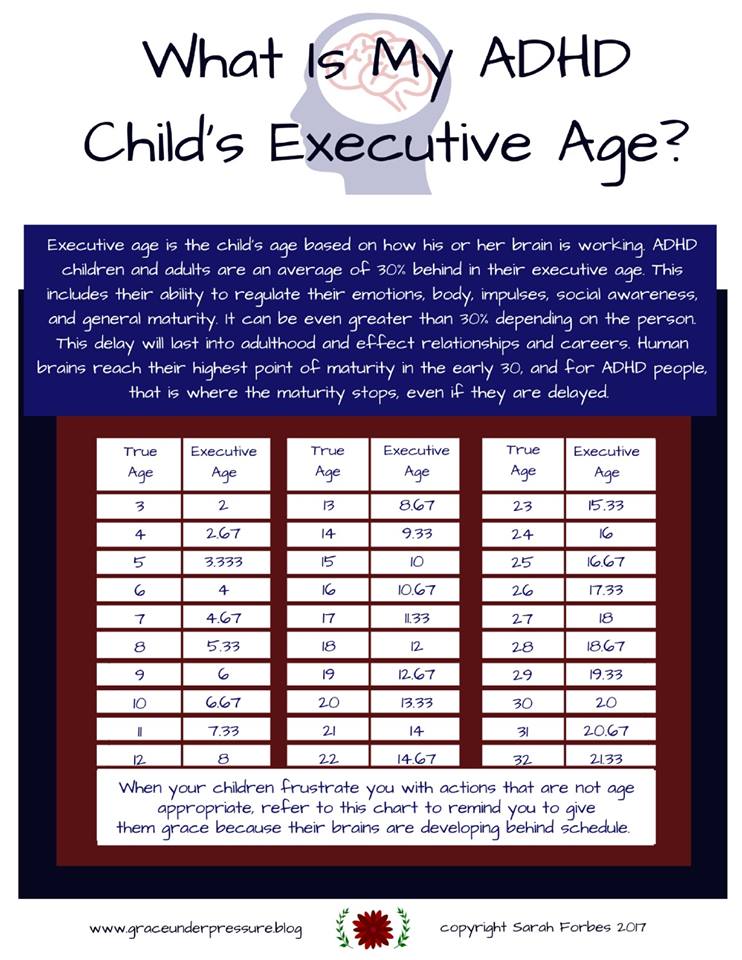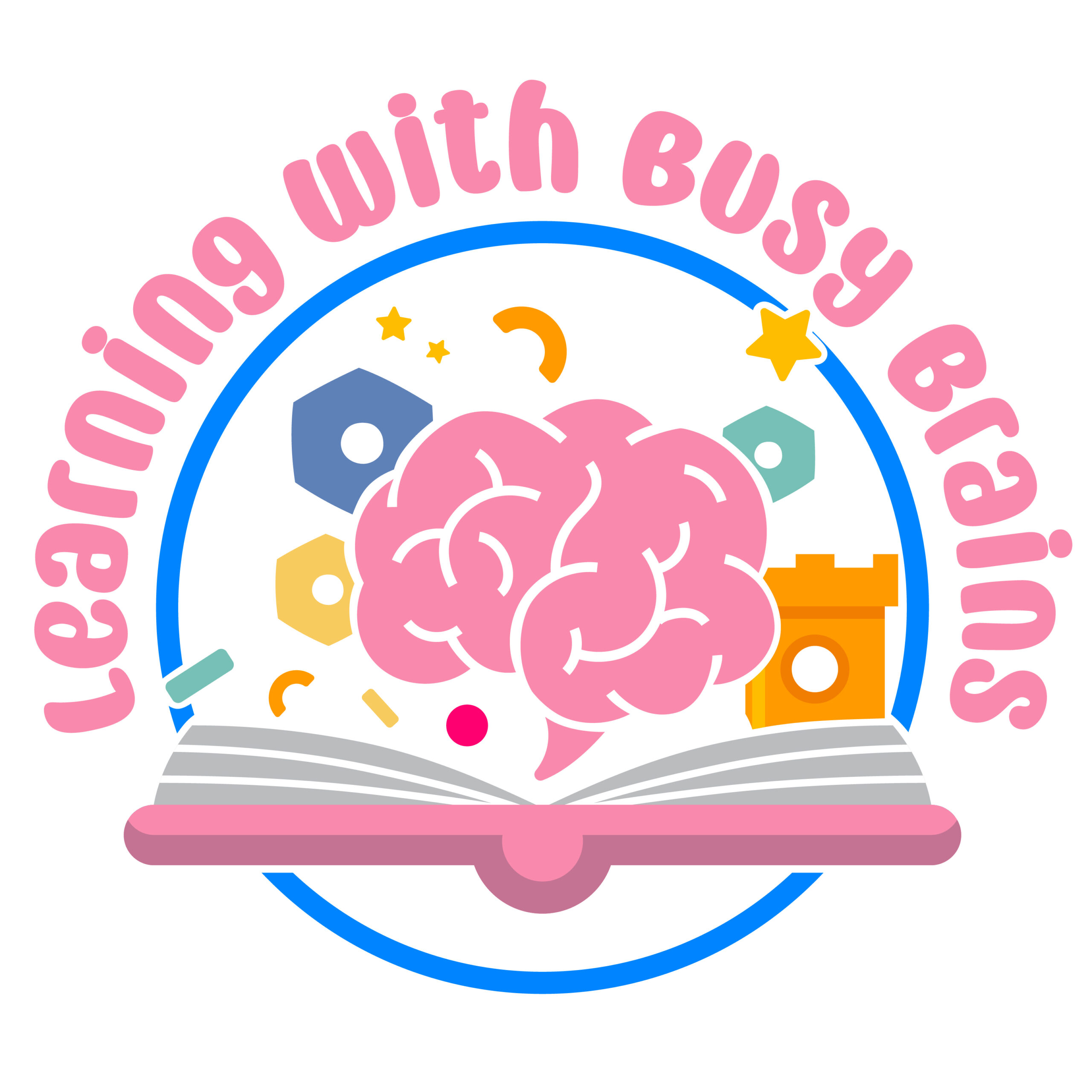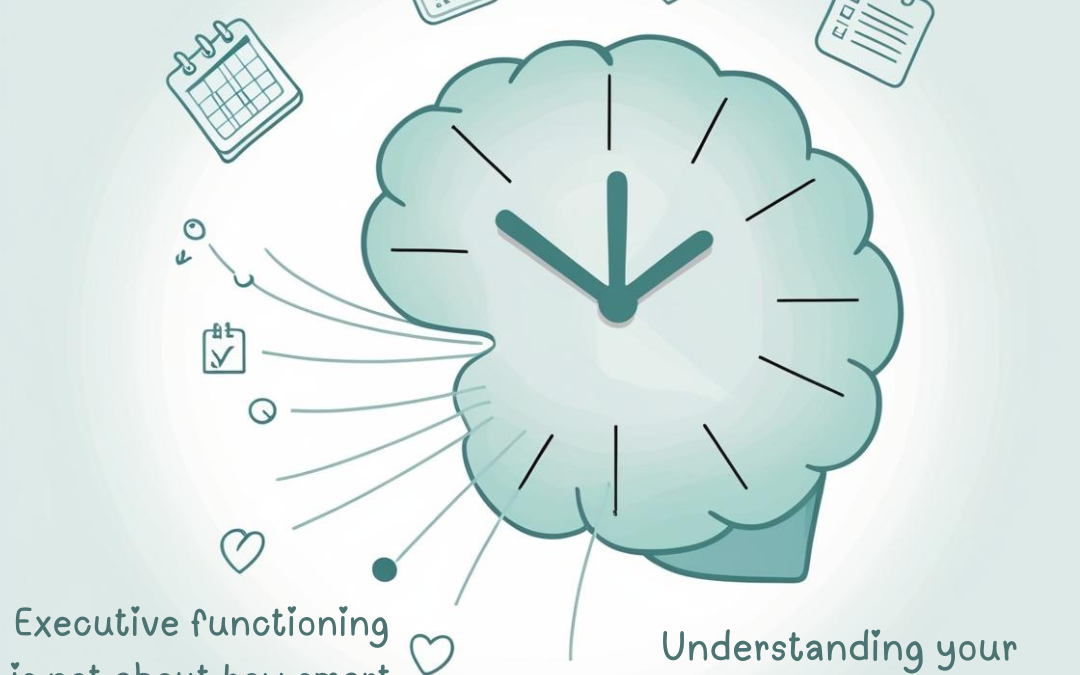Have you ever felt like you’re constantly playing catch-up with life’s expectations? If you’re an adult with ADHD, this overwhelming feeling might not just be in your head, but, it could have a scientific explanation rooted in the concept of executive age.
When I first learned about executive age, everything clicked. It helped me make sense of the daily struggles I faced—not just as a homeschooling mom but also in managing my own life. Research shows that individuals with ADHD often lag behind their peers in developing executive functions: the mental skills that allow us to plan, stay focused, and manage time effectively. In fact, this developmental delay can range from 30-40%, meaning that a 30-year-old with ADHD might possess the executive functioning abilities of someone in their early twenties.
Suddenly, I understood why certain tasks, like managing multiple responsibilities or keeping a household running smoothly, felt so overwhelming at times. It wasn’t laziness or a lack of willpower; my brain simply developed differently.
What Are Executive Functions?
Think of executive functions as the brain’s “command center,” responsible for essential skills like:
- Time management: Planning and prioritizing tasks.
- Impulse control: Staying focused and resisting distractions.
- Working memory: Holding and using information while completing tasks.
- Emotional regulation: Managing frustration and disappointment effectively.
As a homeschooling mom, I see these challenges not just in myself but also in my daughters. For children with ADHD, executive functioning delays might explain why they struggle with time management, following multi-step instructions, or regulating their emotions. This realization has profoundly shaped how I approach our homeschooling journey.
What Does It Mean to Have a Different Executive Age?
Imagine juggling adult responsibilities—career, parenting, or household management—while your brain’s executive functioning operates at a level closer to someone a decade younger. This gap can make tasks that seem straightforward to others feel overwhelming or disorganized.
For my daughters, this concept has helped me reframe how I set expectations. For example, instead of expecting them to complete tasks at the same pace as their peers, I focus on meeting them where they are developmentally. This shift has brought more patience and compassion into our homeschooling days.
Here’s a helpful chart I’ve found invaluable for understanding how executive age might look at different developmental stages. It’s a visual reminder to extend grace to ourselves and our children as we grow:

When frustrations arise, this chart serves as a gentle reminder that their executive development, just like ours, is on a unique timeline. Adjusting expectations with this in mind makes a world of difference in how we approach challenges and celebrate progress.
Living with a Younger Executive Age
Understanding my own executive age has transformed the way I approach challenges. Instead of focusing on what I should be able to do, I focus on building skills and using tools to bridge the gap. Here are some strategies that work for both me and my daughters:
Adjust expectations: I set realistic goals for myself and my children, recognizing that progress looks different for each of us.
- For example, if we’re working on writing skills, I break tasks into smaller, more manageable steps and celebrate small wins along the way.
Use supports: Tools like planners, visual schedules, and alarms have been lifesavers.
- I personally rely on strength-based learning journals from Shawna at Different by Design Learning and Colleen at Raising Lifelong Learners. These help me guide my children through tasks while fostering independence.
Build skills gradually: Instead of tackling everything at once, I focus on one area at a time.
- For my daughters, this means working on emotional regulation through mindfulness exercises or prioritizing time management by using simple timers during lessons.
Foster understanding: Sharing this concept with my family has made a big difference. My husband and I now better understand each other’s struggles, and my daughters feel supported instead of judged.
Why This Matters for Families and Educators
For parents and educators, understanding executive age is a game-changer. It helps us see ADHD not as a failure but as a unique developmental journey. For example, I know my daughters may be several years behind their peers in executive functioning, but that’s okay. It simply means adjusting our pace and providing the tools they need to succeed.
This perspective has helped me create a homeschooling environment that works with their brains instead of against them. By focusing on their strengths, using tools like Brave Writer for writing or “Math with Confidence” for math, and allowing extra time for learning, I’m building a foundation of confidence and resilience.
At Learning with Busy Brains, we’re here to help families navigate challenges with grace and find strategies that truly work. Understanding concepts like executive age is a step toward embracing your unique brain, whether it’s your own or your child’s, and creating a life that thrives on compassion, patience, and growth.
For more tips and insights on ADHD and homeschooling, stay connected with us. Let’s grow and learn together!
Source: Healing Psychiatry Florida – ADHD and Executive Functions, What Is My ADHD Child’s Executive Function Age? by Sarah Forbes


